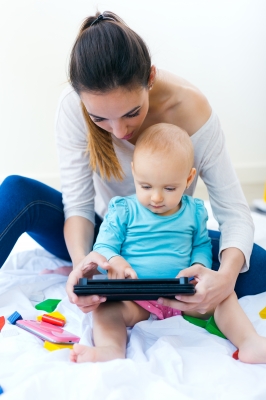Saul Rosenthal, PhD
Boston Area Health Psychologist
Our Devices, Ourselves

Recently, the Boston Globe and its affiliated web site (boston.com) ran some articles relating to the problems of tech overuse. They got me thinking about how our devices have evolved (some might say morphed) into an extension of ourselves and our social world.
In the first, Rachel Racza describes a study showing that when participants were separated from their iPhones during a task but could hear the phone ring, they reported higher anxiety, showed physiologic symptoms of high anxiety (such as increased heart rate) and performed worse on the task. Russell Clayton, who authored the study, argues that this separation anxiety reflects ways in which our phones are ‘an extension of our physical selves – an umbilical cord, anchoring the information society’s digital infrastructure to our very bodies.’ We feel anxious when we’re away from them because we feel as if an integral part of our self is lost.
The next day, Callum Borchers reports (this appears to be behind a paywall) on emerging apps designed to limit access to smartphones. Restrictions range from blocking certain functions to deactivating the device (except emergency calls) for an unmodifiable period of time. The article emphasizes the novelty of using technology to reduce the use of, well, technology. But anybody involved in serious behavior change should not be surprised by this.
To me, these different articles hit on a common theme — coming to terms with the fact that, like it or not, we have real relationships with our technology. Sure, these relationships have fundamental differences than the types of relationships we have with other people. But our smart phones, tablets and computers are so much more than tools. We interact with them, react emotionally to them and rely on them. Furthermore, they can, more and more, change based on our behavior towards them.
What we are failing to do — although I think these articles suggest we are starting to try — is to integrate these technology relationships into our lives just as we do person relationships. There are some vital differences in the relationships we have with technology compared to relationships we have with people. Our template for relationships is based on people and has likely been around for so long that it is, to some extent, genetically encoded. But like so much else with our human response to technology, how we develop relationships with technology lags behind the simple fact that we have relationships.
Without a template, relationships are more likely to go wrong. Technology allows for instant gratification of impulsive desire. Material available via technology tends to discourage inhibition. In other words, our relationships with technology are, compared to our relationships with other people, more likely to develop without healthy give-and-take. Technology can feed our impulsivity to our disinhibited hearts’ delight. People with whom we relate, on the other hand, provide boundaries. It is no wonder that there is a growing technology abstinence movement.
So, if we are in a relationship with our technology and that relationship is unhealthy, does it make sense to abstain?
If we are in a bad relationship with people, do we go to a desert island and never communicate with people again?
Of course not! Which is why I do not advocate for an abstinence model when I work with individuals who overuse technology. Yes, a person might have to cut back. But just as a person in a bad relationship needs to get out of that particular relationship, a person in a maladaptive relationship with technology needs to reduce particular use (that person, by the way, might actually benefit from increasing other types of technology use).
Cutting off all access as ‘addiction’ apps try to do is not the answer. Rather, I advocate for developing better relationships with technology. It can certainly be helpful to limit access to particular types of material, and I am all for using technology to do that. But cutting of all access is like going to a desert island. First, you cannot cut yourself off from technology and live in our world. Second, and perhaps most important to me as a health care provider, living on a desert island doesn’t allow you to develop healthy relationships. A technological desert island might work in the short term, but a good relationship works for life.
Saul R February 18th, 1015
Posted In: Tech
